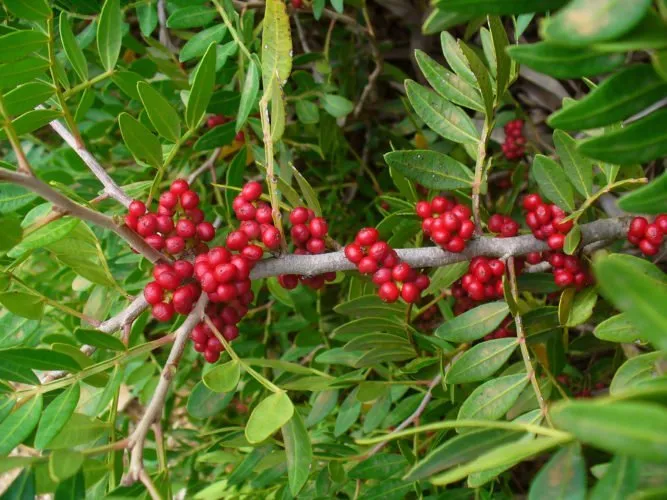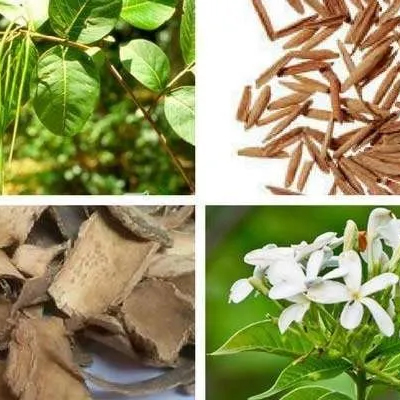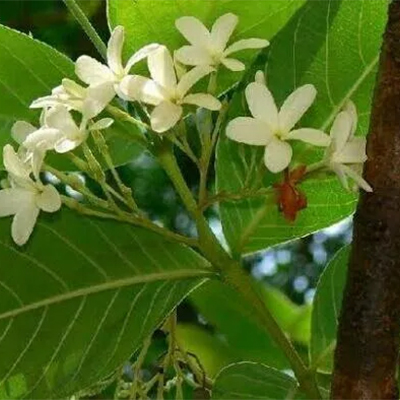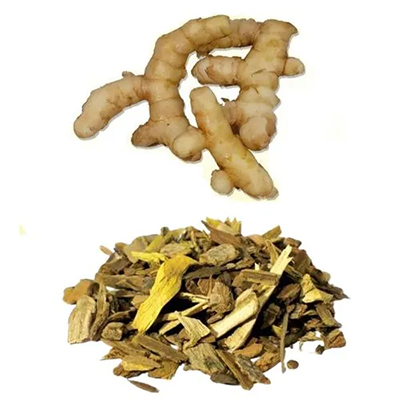On This Page
Karkata Srngi – Pistacia integerrima
Introduction
Karkata srngi, commonly known as ‘Crabs claw’ is a glabrous tree found majorly in Himalayan slopes, hills of Punjab and Uttar Pradesh in India. The name ‘Karkata srngi’ is given because, galls of this plant resembles projections of crab.Pistacia integerrima and belongs to the family Anacardiaceae. Karkata srngi is a commonly available herb and have many medicinal uses. So it is used effectively in various diseases in Ayurveda.
Dr.Gupta’s IAFA conducted various studies in Wild Crabs claw plant to find out the therapeutic actions of the herb. Our experts have successfully proven the pharmacological actions like astringent, tonic, expectorant, anti-inflammatory, stimulant and antiallergic property of Karkata srngi. The experienced scholars of IAFA have found that Pistacia integerrima extract have antiinflammatory properties. Also active constituents of leaf galls of this herb shows antiinflammatory activities. Pistagremic acid obtained from Pistacia integerrima plant shows significant leishmanicidal activity against Leishmania major. As this herb has shown different activities in various studies, it is widely used in the medicinal sector of Ayurveda.
Action of Pistacia integerrima or Karkata srngi in Allergies
IAFA experts are putting continuous efforts to prove the antiallergic property of Karkata srngi. The plant contains phytoconstituents like tannin, resin, essential oil, pistacienoic acid A, pistacin oil acid B, tirucallid and masticadienoic acid in its galls. Essential oil contains camphene, terpineol and caprylic acid. These phytoconstituents aids its actions like expectorant, antiinflammatory and antiallergic activities. So this herb in powder form can effectively be used in skin allergic conditions arising from Vata and Kapha dosha.
Vernacular Names and Botanical Classification
| Vernacular Names | |
| Hindi name | Kakdasingi, Kakarasingi |
| Sanskrit name | Kulira vishanika, Ajashrungi |
| English name | Crabs claw |
| Tamil name | Kakkata shrinigi |
| Bengali name | Kankda Shringi |
| Marathi name | Kakadshingi |
| Kannada name | Kaakada shringi, Karkatakas |
| Telgu name | Kakarsingi, Karkataka Shringi |
| Gujrati name | Kakadashing |
| Punjabi name | Kakar, Kakarsingi |
| Malayalam name | Karkkatasrmgi |
| Kashmiri name | Kakkar, Kamaladina |
| Urdu name | Kakra mastagi desi |
Botanical Name
Pistacia integerrima Strew. Ex Brandis
Family
Anacardiaceae
Parts Used and dosage of Karkata Srngi – Pistacia integerrima
Galls
- Dose – Powder (choornam) – 1-3 gm per day
- Decoction (kashayam) – 20-30 ml per day
Ayurvedic Reference of Karkata Srngi

Medicinal Properties and Uses of Karkata Srngi – Pistacia integerrima
- Food allergy: In indigestion, vomiting, nausea, anorexia and stomach irritability.
- Chest and nasal allergy: found very effective in breathing problems, cough and cold, TB, asthma, rhinitis, sinusitis and bronchitis in children.
- Skin allergy: pacifies vata and kapha vitiated skin diseases; useful in skin ailments.
- Fever: helps to calm down viral fevers.

Have A Health Issue?
Consult Online
- Dr. Sahil Gupta (B.A.M.S., M.H.A.)
Ayurvedic Allergy Specialist
CEO & Founder of IAFA®
Home remedies of Pistacia integerrima or Karkata srngi
Karkata srngi is used in wide range of conditions. There are a lot of home remedies based on Karkata srngi, which has been followed in Indian sub-continent from ancient ages.
- In Asthma (Swasa) – The galls of this plant is collected, powdered and then cooked with gruel. It then taken relieves asthma.
- In Cough (Kasa) – Plant galls are taken and powdered well. It is then licked with sesame oil repeatedly. The mixture will immediately cure cough.
- In Vomiting (Chardi) due to kapha dosha – Powder of Karkata srngi (Pistacia integerrima) is mixed with powder of Musta (Cyperus rotundus) and administered with honey in vomiting.
- As an Aphrodisiac (Vajikarana) – Paste prepared from Karkata srngi powder and milk is useful as an aphrodisiac.
- In Hiccough (Hikka) – Its powder is made with gruel and taken twice a day.
- In Anorexia (Aruci) – It is collected, crushed and made into a decoction and taken twice a day to cure anorexia.
- In Diarrhoea (Atisara) – Administration of powder of this herb is mixed with honey checks diarrhoea
- In Excessive thirst (Trishna) – The decoction made of this herb is used in patients suffering from difficulties of excessive thirst.
Dr.Gupta’s IAFA has been conducting research programmes to identity the phytoconstituents and actions of various drugs used in Ayurveda. Our system mainly aims in the growth of Ayurveda science and maintains a strict protocol to ensure the safety of all consumers. The well experienced members of IAFA are consistently working to find out the most effective ways to cure all diseases especially Allergic disorders. All the herbs used in our system are mentioned in the basic texts of Ayurveda and are collected naturally.
Reach IAFA for safe herbal remedies for all your ailments!!!










